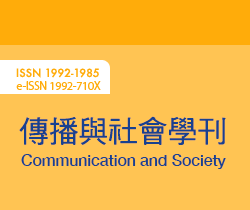 |
| April 2011 |
 |
16 |
|
| 視覺‧文本Text Image |
| 視覺、創意教育與台灣:朱全斌教授專訪 |
| Visuality, Creativity and University: interviewing Professor Bing CHU |
|
|
|
 |
 (2619)
(2619)
|
| 作者 |
周佩霞、馬傑偉 |
| Author |
Carol CHOW, Kit Wai MA |
| 摘要 |
本期的〈視覺•文本〉,把視覺對話從香港、中國大陸擴展到台灣。受訪者朱全斌教授,多年前曾在台灣不同的電視機構及公司任職編導及製作人。朱教授獲取英國倫敦大學金史密斯學院媒體與傳播學博士學位後,出任公共電視副總經理,其後轉到教育界教授傳媒科目,近年則在國立台灣藝術大學應用媒體藝術研究所,教授創意課程。幾年前他重執導演筒,拍攝紀錄片《潤餅的閩南身世》、《聖與罪》等。去年成功申請台灣電影輔導金,現正籌備製作劇情電影。朱教授的個人經歷,跨越不同視覺文本創作,他每個時期的視覺或創作實踐,又與台灣社會的發展相互呼應。此文獨立來看,朱教授的分享反映不同視覺文本如電視、紀錄片、電影在台灣視覺文化生產場域中的位置及歷史軌跡;從更廣闊的層面來看,這一期〈視覺•文本〉對話,特別是創意教育在台灣社會作用的探討,立體地展示視覺文本於大中華不同社區中,在政治、經濟、文化氣候下的不同進程和社會意義。 |
| Abstract |
Bing Chu, a professor of creativity and a veteran producer, talks about his engagements with the television industry, independent production, and university arts education in Taiwan. His career history echoes Taiwan’s history of cultural representations. His experiences in university-level education concerning creativity and audio-visual productions shed light on the “visual turn” in public culture in Taiwan and elsewhere.
Stressing the importance of an expressive selfhood, Prof. Chu shares with us his vision of empowering teenagers by exploring subjectivity from within and resisting the functionality imposed upon us from outside. Prof. Chu suggests that the visual turns have to do with the visual generation placing more trust on visuality over verbal accounts in Taiwan where the two opposing political parties are manipulating social discourses. Prof. Chu has been encouraging students to re-experience their lives by visualizing their memories. When individuals can speak their hearts and minds freely, a more humanistic society will follow, says Prof. Chu.
本文引用格式
周佩霞、馬傑偉(2011)。〈視覺、創意教育與台灣:朱全斌教授專訪〉。《傳播與社會學刊》,第16期,頁193–204。
Citation of this article:
Chow, Carol, Ma, K. W. (2011). Visuality, Creativity and University: interviewing Professor Bing CHU. Communication & Society, 16, 193−204
|
|
|
 |
| No.74 2025 October |
 |
| No.73 2025 July |
 |
| No.72 2025 April |
 |
| No.71 2025 January |
 |
| No.70 2024 October |
|
